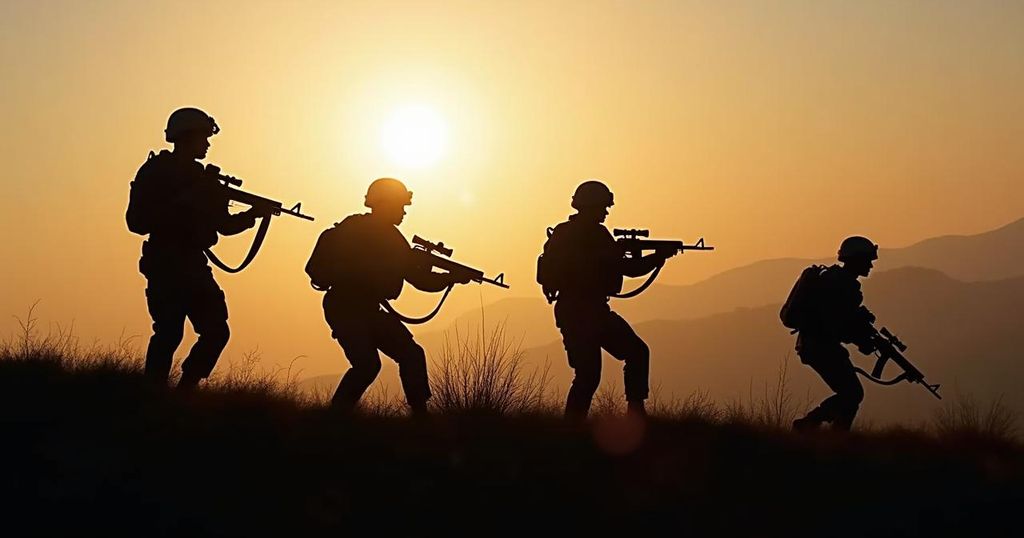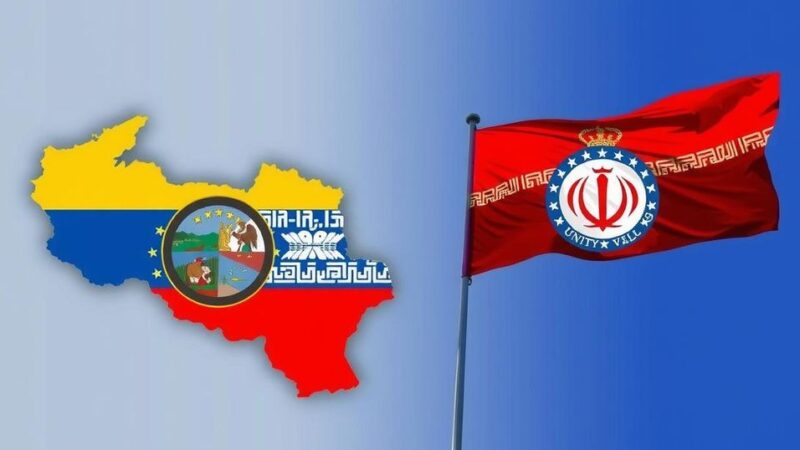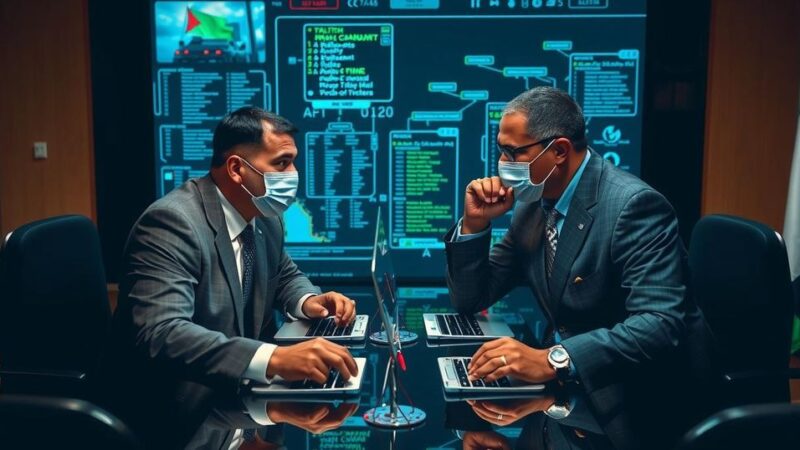Israeli troops clashed with Hezbollah in Lebanon following Iran’s missile attack on Israel that launched at least 180 projectiles, causing fears of a larger regional war. The situation escalated with ongoing Israeli strikes in Gaza, resulting in numerous casualties. Prime Minister Netanyahu warned of consequences for Iran, while Hezbollah’s engagement with Israeli forces marks a significant escalation in border hostilities. The multi-front conflict poses considerable risks for further destabilization in the Middle East.
Israeli forces engaged with Hezbollah militants in Lebanon amidst rising fears of a broader regional conflict following Iran’s missile attack on Israel. On Tuesday, Iran fired at least 180 missiles, escalating tensions in a protracted conflict that has increasingly set the stage for a potential war across the Middle East. The Israeli military reported intercepting some projectiles over Jerusalem, leading to widespread alarm as air raid sirens activated throughout the nation. In Tehran, supporters celebrated the missile strike against Israel, chanting slogans and displaying flags of Iran and Hezbollah. Meanwhile, the Israeli military confirmed retaliatory strikes against Hezbollah targets in Lebanon. The military’s operations followed the significant missile barrage from Iran, which Israeli officials characterized as a provocation with dire consequences on the horizon. Prime Minister Benjamin Netanyahu underscored the threat from Iran, asserting, “Iran will pay a price” for the attacks. The violence continues to ravage Gaza as well, where Israeli forces reported additional casualties in their campaigns against Hamas militants, with reports indicating over 1,000 fatalities in Lebanon attributed to Israeli strikes in recent weeks. Hezbollah claimed its fighters engaged with Israeli troops along the border, marking the first confirmed incursion by Israeli forces since the latest flare-up of violence. The Lebanese Army reported the brief advance of Israeli troops across the border, highlighting the instability in the region. The escalating conflict has forced significant displacement, with numerous residents fleeing northern villages as tensions mount. Israeli officials have stated that military actions will persist until security can be restored to the region, demonstrating their commitment to retaliate against Hezbollah until a ceasefire is established in Gaza. In a related development, the United Nations faced backlash from Israel, which labeled Secretary-General António Guterres as persona non grata after he issued a statement urging for a ceasefire, further straining relations. In the backdrop of these developments, Iran has vowed to respond to any perceived encroachment on its sovereignty, raising alarms over a deepening involvement of regional powers in the conflict. The potential ramifications of these hostilities could significantly alter the geopolitical landscape in the Middle East, with international stakeholders closely monitoring the situation.
The current conflict between Israel and Iran is part of a longstanding and complex interaction involving multiple regional actors, including Hezbollah and Hamas. Tensions have risen sharply in recent months, with incidents of violence leading to increased military confrontations. Iran’s recent missile attacks on Israel followed a series of Israeli strikes against its affiliated groups, resulting in casualties and an escalating military exchange that threatens regional stability on a larger scale. The ongoing war in Gaza, initiated by Hamas’s attacks on October 7, 2023, has drawn in various players, complicating the landscape further and emphasizing the fragile situation in the Middle East.
The escalation of military actions between Israel, Hezbollah, and Iran represents a critical junction in Middle Eastern geopolitics, with potential implications for international relations and regional alliances. As violence intensifies and casualties mount, the need for de-escalation and a diplomatic resolution is increasingly urgent. However, the entrenched positions of the involved parties raise concerns about the possibility of achieving lasting peace amidst ongoing hostilities.
Original Source: apnews.com






